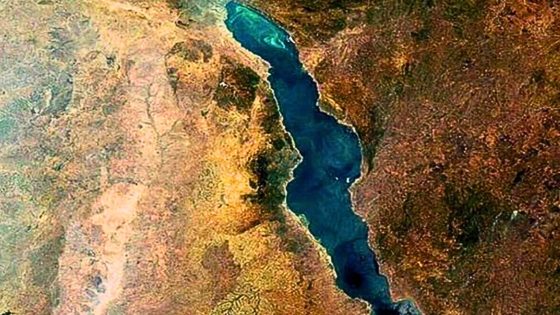A new ocean is forming in East Africa, and it’s happening faster than scientists predicted. As tectonic plates shift, the landscape is transforming dramatically. What does this mean for the future of the continent and the world? This geological phenomenon, observed on February 9, 2025, raises questions about the impact on economies, ecosystems, and even global geography.
- East African Rift forming a new ocean
- African and Somali plates moving apart
- Afar region rift reaches 60 kilometers
- Rapid geological changes can occur
- New coastlines and economic opportunities
- Continuous evolution of Earth's geography
How the Formation of a New Ocean Will Impact Global Geography
Have you ever wondered how tectonic shifts can reshape entire continents? The East African Rift System is a prime example, where the African and Somali plates are slowly pulling apart. This geological activity is not just a local phenomenon; it has global implications that could alter trade routes and ecosystems.
The Future of Africa’s Landscape and Economy
The ongoing rifting process is set to change not only Africa’s geography but also its economies. As the land separates, new coastlines will emerge, creating opportunities for trade and tourism. This transformation could benefit landlocked countries, allowing them access to ocean resources.
Key Changes Expected from Africa’s New Ocean Formation
The emergence of a new ocean will bring several changes to the region:
- New coastlines for landlocked countries like Zambia and Uganda.
- Economic opportunities through new trade routes and ports.
- Evolution of ecosystems, leading to new marine habitats.
- Infrastructure challenges due to rising sea levels and seismic activity.
Understanding the Geological Forces at Play
The tectonic forces driving this transformation are a reminder of Earth’s dynamic nature. Scientists are closely monitoring these changes to understand their full implications. The rapid pace of rifting, as seen in past earthquakes, suggests that we may witness significant geological events sooner than expected.
The Global Significance of East Africa’s Transformation
The formation of a new ocean in East Africa is not just a local issue; it has global significance. As trade routes shift and new ecosystems emerge, countries around the world, including the U.S., may need to adapt to these changes. The evolution of Africa’s geography could redefine international relations and economic partnerships.
In conclusion, the formation of a new ocean in East Africa is a captivating geological event with vast implications. As scientists continue to study this phenomenon, we must remain aware of how it could reshape our world.

































